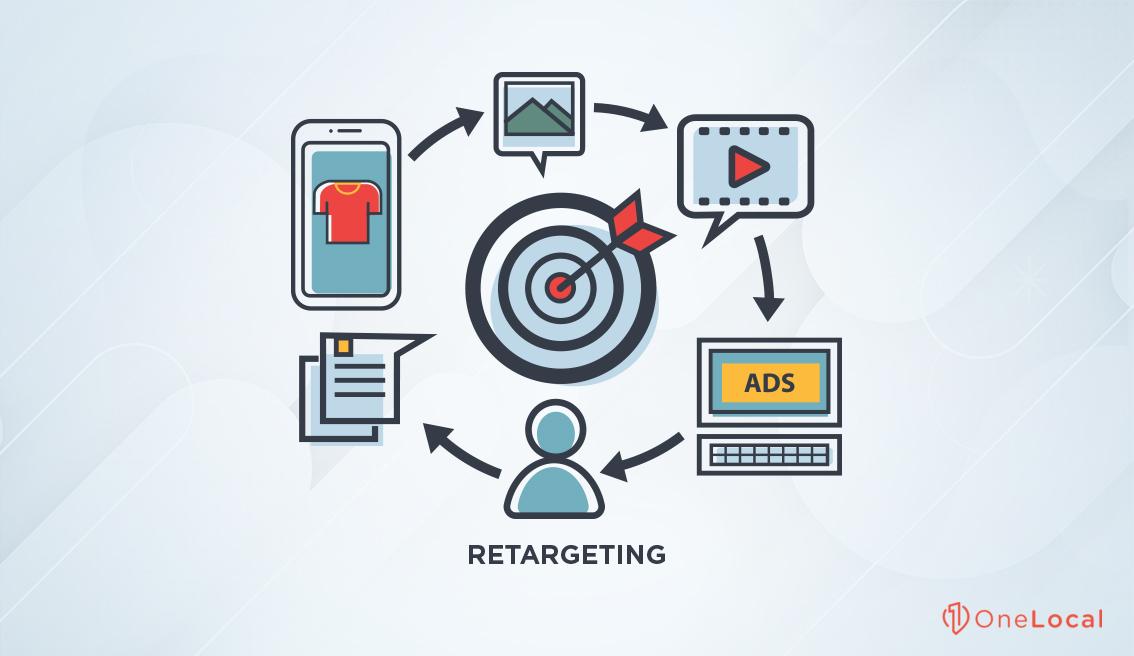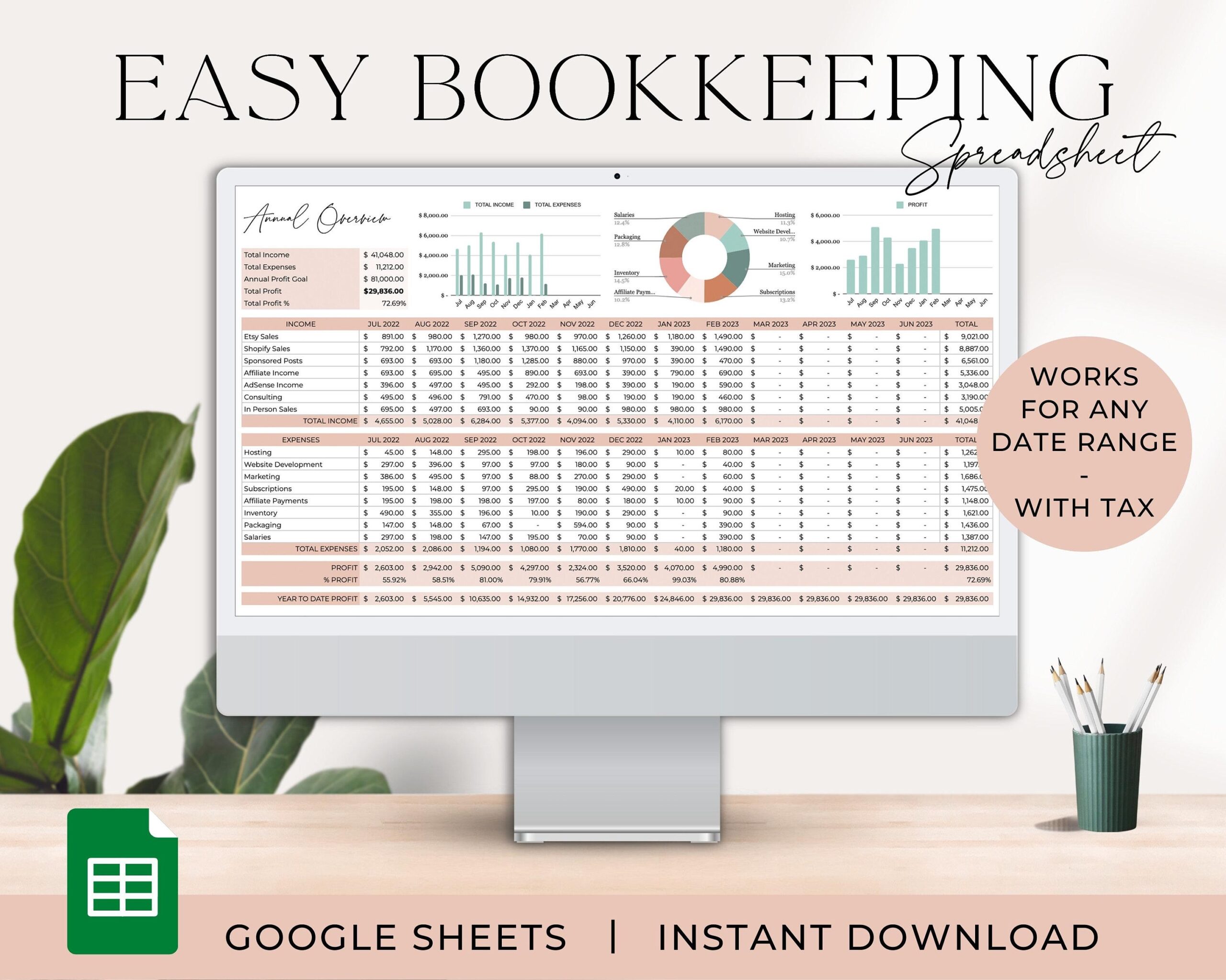
Are you ready to dive into the ever-evolving world of online commerce, specifically in the realm of medicine? If you’ve ever considered selling health products or medications online, you’re in the right place! With the right strategies and platforms, you can tap into a booming market that’s only set to grow. In this article, we’ll explore 25 different places where you can sell medicine online—each with unique advantages that cater to different needs and audiences. Plus, we’ll share essential tips on how to build your own online store from the ground up. Whether you’re a seasoned entrepreneur or just starting out, this guide will equip you with the knowledge and confidence to embark on your online selling journey. Let’s get started on turning your passion for health into a thriving online business!
Understanding the Legal Landscape of Selling Medicine Online
When it comes to selling medicine online, navigating the legal landscape is crucial. The regulations surrounding the sale of pharmaceuticals vary widely across different regions and countries, making it essential for sellers to be informed and compliant. Understanding these legal requirements not only protects your business but also ensures the safety and well-being of consumers.
Licensing and Regulations: Before you even think about launching your online pharmacy, you need to secure the necessary licenses. These often include:
- Pharmacy licenses specific to your state or country.
- Federal licenses, depending on the type of medicines you intend to sell.
- Compliance with the Drug Enforcement Administration (DEA) regulations if selling controlled substances.
In addition, familiarize yourself with the rules set forth by the Food and Drug Administration (FDA) or equivalent regulatory bodies in your area. These organizations oversee the safety and efficacy of drugs and ensure that your online store meets their standards.
Prescription Requirements: Many medications require a prescription before they can be sold. It is vital to establish a robust method for verifying prescriptions if you plan to offer prescription drugs. This could involve:
- Working with licensed healthcare professionals to validate prescriptions.
- Implementing strict verification processes for customers.
- Clearly communicating to customers the importance of obtaining a valid prescription.
Consumer Protection Laws: As an online seller, customer trust is paramount. Ensure you comply with consumer protection laws, which may include:
- Providing clear return and refund policies.
- Ensuring customer data is protected in accordance with privacy laws.
- Offering transparent pricing and product information.
Advertising Regulations: The way you market your online pharmacy is also tightly regulated. Be sure to adhere to the following guidelines:
- Avoid making false claims about the effectiveness of medications.
- Ensure all advertisements are clear, truthful, and not misleading.
- Stay updated on any restrictions related to online marketing in your jurisdiction.
By understanding and adhering to these legal requirements, you can build a reputable online pharmacy that not only attracts customers but also maintains compliance with the law. Being proactive in setting up your business correctly will save you from potential legal headaches down the line, allowing you to focus on what you do best: providing quality medicines to those in need.

Choosing the Right Products to Sell in Your Online Pharmacy
When venturing into the world of online pharmacy, selecting the right products to sell is pivotal for your success. The landscape of online medicine is not only dependent on regulations and logistics but also on understanding the needs of your target audience. Here are some factors to consider when curating your inventory:
- Market Demand: Research popular medications and health products. Look for trends in consumer behavior and seasonal demands.
- Specialization: Focus on specific niches, such as chronic illness management, wellness products, or niche supplements. This can help you stand out in a crowded market.
- Brand Partnerships: Collaborate with reputable brands to ensure quality and establish trust with your customers. Quality assurance is essential in the pharmacy sector.
- Regulatory Compliance: Make sure the products you choose comply with local and international regulations. Selling prescription medications requires a pharmacy license and stringent adherence to laws.
To make an informed decision, consider conducting surveys or polls on social media platforms to gauge what your potential customers are interested in. Engaging directly with your audience can provide insights that data alone might not reveal.
Moreover, evaluating your competitors can reveal gaps in the market. Identify what products are in demand but not widely available. This could be anything from organic supplements to specialized medical equipment. A well-rounded approach can help you fill these gaps efficiently.
Below is an overview of potential product categories you might consider:
| Category | Description |
|---|---|
| Prescription Medications | Essential for treating various conditions; ensure compliance with laws. |
| OTC Products | Wide range of non-prescription drugs, such as pain relievers and allergy medications. |
| Health Supplements | Vitamins, minerals, and herbal products that promote wellness. |
| Personal Care Items | Skincare, dental care, and hygiene products that customers frequently purchase. |
| Medical Equipment | Devices like blood pressure monitors and thermometers that assist in health management. |
Additionally, consider the seasonal aspects of certain products, such as flu shots in winter or allergy medications in spring. Identifying these trends allows you to tailor your offerings accordingly, maximizing sales potential throughout the year.
Lastly, don’t underestimate the power of customer feedback. Once your online pharmacy is up and running, actively seek reviews and suggestions. This not only helps improve your product line but also builds a loyal customer base eager to return for their health needs.
Finding Reliable Suppliers for Your Medicine Inventory
When you’re venturing into the world of selling medicine online, establishing a solid inventory with reliable suppliers is crucial. The quality of medicines you offer not only affects your business reputation but also the health and safety of your customers. Here are some key points to consider when looking for trustworthy suppliers:
- Research and Reviews: Start by researching potential suppliers online. Look for reviews and testimonials from other businesses to gauge their reputation. Websites like Trustpilot and SiteJabber can offer insights into customer experiences.
- Regulatory Compliance: Ensure that any supplier you consider complies with all relevant regulations and standards. This includes having necessary licenses, adhering to good manufacturing practices (GMP), and ensuring that their products are approved by regulatory bodies like the FDA or EMA.
- Quality Assurance: Ask potential suppliers about their quality assurance processes. Reliable suppliers should have robust systems in place to ensure the consistency and safety of their products.
Additionally, it’s essential to build a relationship with your suppliers. Strong communication can lead to better pricing, faster shipping, and even the opportunity for exclusive deals.
Consider creating a comparison table to evaluate your suppliers based on key factors. Here’s a simple format you might use:
| Supplier | Quality Ratings | Compliance Status | Minimum Order Quantity | Shipping Time |
|---|---|---|---|---|
| Supplier A | 4.5/5 | Yes | 100 units | 3-5 days |
| Supplier B | 4.0/5 | No | 50 units | 5-7 days |
| Supplier C | 4.8/5 | Yes | 200 units | 2-4 days |
- Pricing and Payment Terms: Discuss pricing upfront to avoid surprises later. Understand their payment terms and conditions as well to ensure they align with your business model.
- Customer Service: Gauge their customer service responsiveness. A supplier who is easy to contact and quick to resolve issues can save you a lot of headaches.
- Product Range: Ensure they offer a wide range of medicines and are willing to work with you if you need to expand your inventory in the future.
Lastly, don’t hesitate to ask for samples before committing to a long-term contract. This allows you to test the product quality firsthand. Finding reliable suppliers might take some time, but your diligence will pay off through a robust medicine inventory that keeps your online pharmacy thriving and your customers coming back for more.
Setting Up Your Online Store: Key Platforms to Consider
When diving into the world of e-commerce, choosing the right platform for your online store is crucial, especially in the sensitive field of selling medicine. You want something that not only looks professional but also complies with regulations and provides a smooth shopping experience for your customers. Here are some key platforms to consider:
- Shopify: Known for its user-friendly interface, Shopify offers a variety of templates suited for pharmacies and health products. It comes with built-in SEO features and integrations for payment processing, making it an excellent choice for beginners.
- WooCommerce: If you’re already familiar with WordPress, WooCommerce is a fantastic option. It allows for extensive customization and is scalable, which means it can grow as your business expands.
- BigCommerce: This platform is designed for larger businesses but is also great for startups looking to scale. It provides advanced analytics, multi-channel selling, and a variety of payment gateways.
- Magento: While it requires more technical know-how, Magento offers unparalleled flexibility and power. Ideal for businesses with complex needs, it allows for extensive customization for unique product offerings.
- Squarespace: If aesthetics are a priority for your brand, Squarespace boasts beautiful templates. Although it may not have as many e-commerce features as others, it’s perfect for those with a focus on branding.
Each platform has its strengths, but it’s essential to evaluate your specific needs. Consider factors such as:
- Ease of Use: Look for a platform with a straightforward setup process and user-friendly interface.
- Payment Processing: Ensure the platform supports the payment methods you want to offer.
- Compliance Features: Given the nature of selling medicine, make sure the platform assists in meeting legal and regulatory requirements.
- Customer Support: Reliable customer support can save you headaches down the line, so check for availability and responsiveness.
| Platform | Best For | Key Feature |
|---|---|---|
| Shopify | Beginners | User-friendly templates |
| WooCommerce | WordPress Users | Extensive customization |
| BigCommerce | Growing Businesses | Advanced analytics |
| Magento | Complex Needs | High flexibility |
| Squarespace | Branding Focus | Beautiful design templates |
the right platform can make or break your online pharmacy. Take the time to explore these options and choose one that aligns with your vision and operational needs. Remember, the best choice is the one that not only meets your current requirements but also has the potential to grow alongside your business.
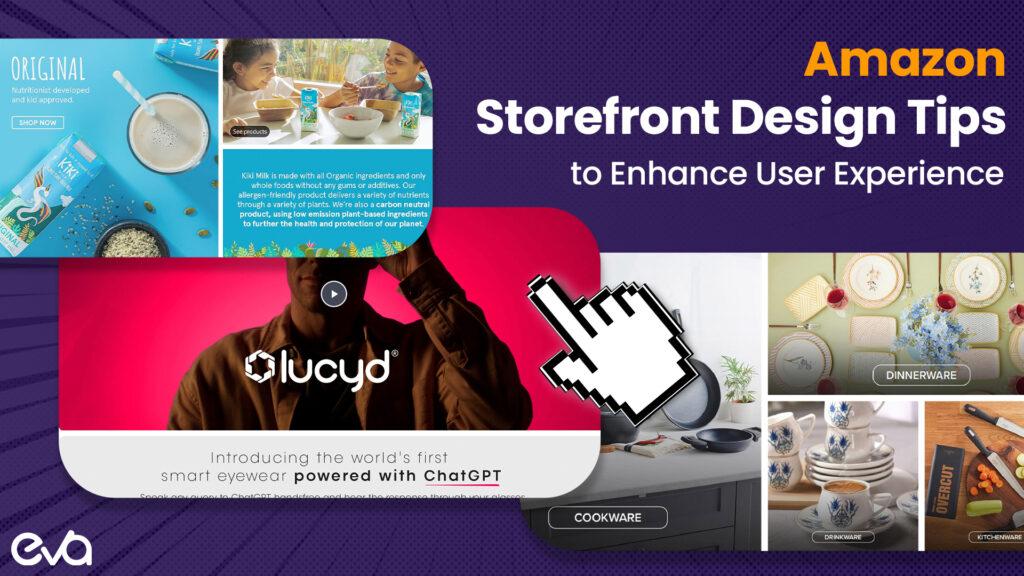
Crafting a User-Friendly Storefront That Attracts Customers
Creating a storefront that resonates with customers is essential for any online medicine business. A user-friendly design not only enhances the shopping experience but also encourages repeat visits and builds trust. Here are some key elements to consider when crafting your storefront:
- Intuitive Navigation: Ensure that your site is easy to navigate. Use clear categories and subcategories to help users find what they’re looking for quickly. Implement a search bar that suggests products as users type.
- Responsive Design: With many users shopping on mobile devices, your storefront must look great and function well on all screen sizes. A responsive design adapts seamlessly, providing a pleasant experience regardless of device.
- High-Quality Images: Use high-resolution images that showcase your products effectively. Customers should be able to zoom in for a closer look, which can help alleviate any doubts about the quality of what they’re purchasing.
- Clear Product Descriptions: Provide detailed descriptions that outline the benefits, usage, and any important information about the medicine. Be transparent and informative to build trust with your customers.
- User Reviews and Ratings: Incorporate a review section on your product pages. Positive feedback from other customers can greatly influence purchasing decisions. Encourage customers to leave reviews after their purchases.
Another vital aspect is to build a strong brand identity. Your storefront should reflect your brand’s values and mission:
- Consistent Branding: Use consistent colors, fonts, and logos across your site. This creates a cohesive look that strengthens brand recognition.
- Engaging Content: Consider adding a blog or resources section where you share helpful health tips, product guides, or industry news. This can position you as an authority in your field and keep visitors returning to your site.
- Promotions and Discounts: Highlight any special offers prominently on your homepage. Limited-time discounts can create urgency and encourage purchases.
ensure that checkout is as seamless as possible. A complicated checkout process can lead to cart abandonment:
| Checkout Feature | Description |
|---|---|
| Guest Checkout | Allow users to check out without creating an account to reduce friction. |
| Multiple Payment Options | Include credit cards, PayPal, and other popular payment methods to accommodate preferences. |
| Progress Indicators | Use a progress bar to show users how many steps are left in the checkout process. |
By focusing on these elements, you can create an appealing and functional storefront that not only attracts customers but keeps them coming back for more.

Mastering the Art of Product Descriptions and Images
When it comes to selling medicine online, the way you present your product can make all the difference. Mastering product descriptions and images isn’t just about showing off what you have; it’s about creating an experience that compels customers to hit that “buy” button. Here’s how to elevate your product listings to ensure they stand out in the crowded e-commerce marketplace.
Engaging Product Descriptions
Start with clear and concise descriptions. Customers want to know exactly what they’re purchasing, especially when it comes to medicine. Highlight the key benefits and uses of each product, and don’t shy away from addressing potential concerns. Here are some essential elements to include:
- Key Features: Detail what makes your medicine effective.
- Usage Instructions: Provide clear guidance on how to use the product correctly.
- Safety Information: Share any important warnings or side effects.
- Ingredients: List ingredients for transparency and to cater to health-conscious consumers.
SEO Optimization
Don’t forget about search engine optimization (SEO). Use relevant keywords throughout your product descriptions to enhance visibility. Think about what terms potential customers might be searching for and include them naturally within your content.
High-Quality Images
Images play a crucial role in e-commerce. Invest in high-quality photography that showcases your products effectively. Here’s how to make your images work harder for you:
- Multiple Angles: Show your product from various angles to give customers a complete view.
- In-Use Shots: Include images of the medicine being used in real-life scenarios.
- Zoom Functionality: Allow customers to enlarge images to see details clearly.
- Consistent Style: Maintain a uniform style across all images for brand consistency.
Trust and Credibility
In the world of medicine, trust is paramount. Make sure to include any certifications, endorsements, or clinical study references in your descriptions. Customers are more likely to purchase from you if they feel confident in your product’s efficacy and safety.
Customer Reviews and Testimonials
Leverage social proof by incorporating customer reviews and testimonials into your product pages. This can significantly increase trust and conversion rates. Feature positive experiences and feedback prominently to reassure potential buyers of your product’s value.
Testing and Iteration
don’t be afraid to test different styles of product descriptions and images. Use A/B testing methods to find out what resonates most with your audience. Pay attention to engagement metrics, and be ready to tweak your approach as needed. Mastery comes through practice!

Optimizing Your Store for Search Engines to Boost Visibility
To effectively enhance your online store’s visibility and attract potential customers, it’s crucial to implement a robust search engine optimization (SEO) strategy tailored for your niche. By optimizing your store for search engines, you can ensure that your products are easily discoverable by those searching for medicines online. Here are several essential tactics to elevate your store’s SEO performance:
- Keyword Research: Begin by identifying the keywords that your target audience uses when searching for medicines. Use tools like Google Keyword Planner or Ahrefs to discover high-traffic, relevant phrases, and incorporate them throughout your content.
- On-Page SEO: Optimize your product pages by including keywords in titles, meta descriptions, headers, and product descriptions. Ensure your content is informative and engaging, addressing common customer questions.
- Image Optimization: Since visuals play a significant role in e-commerce, make sure your product images are high quality and optimized. Use descriptive file names and alt tags to improve search visibility.
- Mobile Optimization: With a growing number of users shopping via mobile devices, ensure your website is responsive and offers a seamless shopping experience regardless of the device used.
- Loading Speed: Website speed affects both user experience and SEO rankings. Use tools like Google PageSpeed Insights to analyze and improve your site’s loading times.
In addition to these tactics, focusing on creating high-quality content can significantly boost your SEO efforts. Consider starting a blog that addresses common health concerns, medicine usage tips, or new research in the field. This not only helps establish your brand as a trusted authority but also generates organic traffic through valuable information.
Building backlinks is another powerful way to improve your store’s visibility. Reach out to health blogs, forums, and influencers to establish partnerships or guest posting opportunities. Quality backlinks signal to search engines that your site is reputable and can enhance your search rankings.
Lastly, utilize local SEO strategies if you also serve local customers. Register your store on Google My Business and ensure your name, address, and phone number (NAP) are consistent across all platforms. Encourage satisfied customers to leave reviews to enhance your credibility and attract new shoppers.
| SEO Strategy | Description |
|---|---|
| Keyword Research | Identify and incorporate relevant keywords into your content. |
| On-Page SEO | Optimize product pages with keywords and informative descriptions. |
| Image Optimization | Use descriptive file names and alt tags for product images. |
| Mobile Optimization | Ensure a responsive design for a seamless mobile experience. |
| Loading Speed | Improve site speed for better user experience and SEO. |
Implementing these strategies effectively can significantly increase your online visibility, driving more traffic to your store and ultimately boosting sales. Remember, SEO is an ongoing process, so continuously monitor your performance and make adjustments as needed.

Building Trust with Customers: The Importance of Transparency
In today’s digital marketplace, establishing a strong rapport with customers is crucial, particularly when it comes to selling medicine online. One powerful way to cultivate this relationship is by embracing transparency throughout your business practices. Customers are more likely to purchase from you if they feel confident in the integrity of your operations.
Transparency can manifest in several ways, including:
- Clear Product Information: Provide detailed descriptions, including ingredients, dosage, and potential side effects. This helps customers make informed decisions.
- Transparent Pricing: Clearly outline your pricing strategy. Avoid hidden fees to foster trust and encourage repeat business.
- Authentic Customer Reviews: Encourage honest feedback from customers and display it prominently. This shows potential buyers that you value their opinions and are committed to quality.
- Accessible Contact Information: Make it easy for customers to reach out with questions or concerns. A responsive customer service team adds an extra layer of trust.
Another effective strategy is to share your story. Customers appreciate knowing who is behind the brand. Consider including a section on your website that details your journey, the mission of your business, and your commitment to customer health and safety. This personal touch helps humanize your brand and strengthens the connection with your audience.
Implementing a clear returns policy can also enhance transparency. Customers need to feel assured that they can return or exchange products if necessary. Clearly outlining your policy, including timelines and conditions, can alleviate concerns and foster confidence in your brand.
Moreover, consider utilizing technology to communicate product authenticity. Labeling products with QR codes that lead to detailed information about sourcing and manufacturing can reassure customers that they are purchasing genuine, high-quality medicine.
keep your communication channels open. Regularly updating your customers through newsletters or social media about new products, changes in policy, or health tips can keep them engaged and reinforce your commitment to transparency and customer well-being.
With a foundation built on transparency, you not only enhance customer trust but also set the stage for long-term loyalty and repeat business, crucial components for thriving in the competitive online pharmacy landscape.
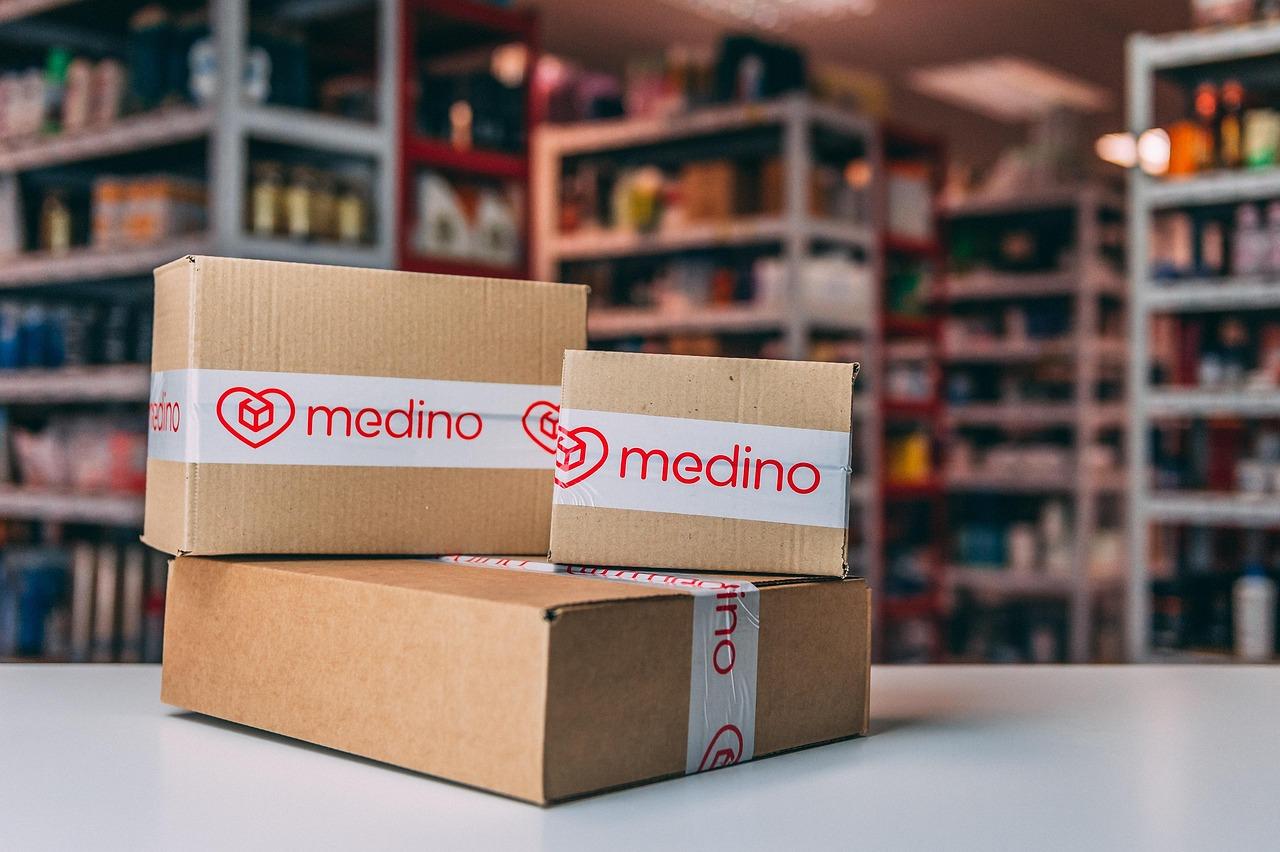
Effective Marketing Strategies to Promote Your Online Medicine Store
In the competitive landscape of online medicine sales, utilizing the right marketing strategies can significantly boost your visibility and sales. A mix of digital marketing techniques will not only help you reach your target audience but also build trust and credibility. Here are some effective strategies to consider:
- Search Engine Optimization (SEO): Optimize your website with relevant keywords related to online medicine. Use tools like Google Keyword Planner to find trending keywords that potential customers are searching for. Aim for both on-page and off-page SEO tactics to improve your search engine rankings.
- Content Marketing: Create informative content that addresses common health concerns and medication-related topics. Blog posts, infographics, and videos can educate your audience while subtly promoting your products. Quality content establishes you as an authority and builds trust with potential customers.
- Social Media Engagement: Utilize platforms like Facebook, Instagram, and Twitter to connect with your audience. Share helpful tips, success stories, and product highlights. Engaging with your followers through comments and messages creates a community around your brand.
- Email Marketing: Build an email list and send out regular newsletters featuring promotions, new products, and valuable health information. Personalize your emails to improve engagement and create a sense of exclusivity for your subscribers.
Implementing targeted advertising can also drive traffic to your online store. Consider these options:
- Pay-Per-Click (PPC) Advertising: Invest in Google Ads to target specific keywords related to your products. This strategy can yield immediate results by driving traffic to your site when potential customers search for specific terms.
- Social Media Ads: Platforms like Facebook and Instagram offer targeted advertising that can be tailored to specific demographics. You can reach out to specific groups based on age, interests, and location, ensuring your ads are seen by the right audience.
Building partnerships can also enhance your marketing efforts:
- Collaborations with Healthcare Professionals: Partner with doctors or pharmacists who can recommend your online store to their patients. This adds credibility and can lead to increased sales.
- Affiliate Marketing: Create an affiliate program that encourages bloggers and influencers in the health niche to promote your products. Offering them a commission for each sale can amplify your reach.
consider utilizing a loyalty program to encourage repeat business:
| Benefit | Description |
|---|---|
| Increased Customer Retention | Reward loyal customers with discounts or free products, incentivizing them to return. |
| Higher Average Order Value | Loyalty programs encourage customers to spend more to unlock rewards. |
| Enhanced Brand Loyalty | Customers feel valued and are more likely to recommend your store to others. |
By integrating these strategies into your marketing plan, you will not only promote your online medicine store more effectively but also create lasting relationships with your customers. Emphasizing credibility, engagement, and customer satisfaction is key to thriving in this industry.
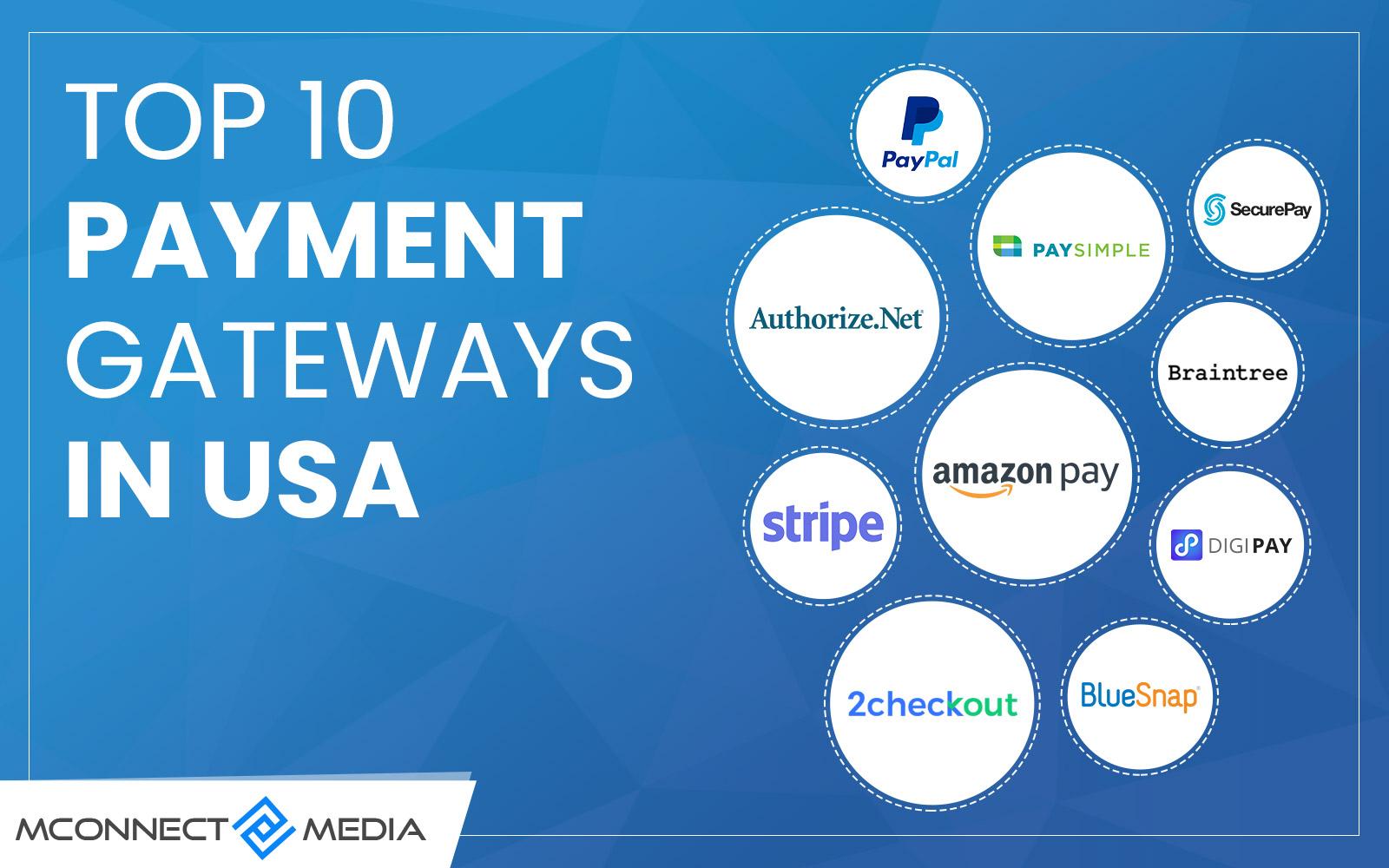
Navigating Payment Gateways and Ensuring Secure Transactions
When it comes to selling medicine online, one of the most critical aspects to consider is the choice of payment gateways. A reliable payment gateway not only facilitates transactions but also ensures that sensitive information is transmitted securely. Here are some key factors to keep in mind when navigating this landscape:
- Security Features: Look for payment gateways that offer robust encryption protocols, such as SSL (Secure Socket Layer) and PCI-DSS compliance, to protect customer data.
- Transaction Fees: Different payment providers have varying fee structures. Evaluate these costs carefully to ensure they align with your business model and profit margins.
- User Experience: A smooth checkout process can significantly impact conversion rates. Choose a gateway that integrates seamlessly with your online store and offers a user-friendly experience.
- Payment Options: Customers appreciate flexibility. Opt for a gateway that supports multiple payment methods, including credit cards, digital wallets, and even cryptocurrencies.
Additionally, the choice of payment gateway can influence customer trust. A well-known and reputable provider can instill confidence in your clientele, making them more likely to complete transactions. Here are some popular options to consider:
| Payment Gateway | Key Features | Best For |
|---|---|---|
| PayPal | Wide acceptance, buyer protection, easy integration | Small to medium-sized businesses |
| Stripe | Developer-friendly, advanced analytics, subscription billing | Tech-savvy businesses |
| Square | Point of sale integration, inventory management | Retailers with physical locations |
| Authorize.Net | Recurring billing, fraud detection tools | Established brands |
On top of selecting the right gateway, it’s essential to implement additional security measures. Consider incorporating two-factor authentication (2FA) and regularly monitoring transactions for any suspicious activity. This not only protects your business but also builds trust among your customers.
Lastly, keep in mind the importance of compliance with regulations surrounding online medicine sales. Ensure that you are familiar with legal requirements in your jurisdiction, as non-compliance can lead to severe repercussions. Partnering with a payment processor that specializes in healthcare transactions can offer additional peace of mind, as they are often well-versed in industry-specific regulations.

Providing Exceptional Customer Service to Foster Loyalty
In today’s competitive online marketplace, exceptional customer service is not just an add-on; it’s a crucial element that can significantly influence customer loyalty. When selling medicine online, creating a trustworthy and supportive shopping experience can set your store apart from the rest. Here are some strategies to foster loyalty through outstanding service:
- Personalized Interactions: Engage with your customers on a personal level. Use their names in correspondence, recommend products based on their previous purchases, and provide tailored advice. This makes customers feel valued and understood.
- Prompt Responses: Ensure that your customer service team is easily accessible through multiple channels – live chat, email, and social media. Quick responses to inquiries can prevent frustration and build trust.
- Comprehensive FAQs: Anticipate customer questions by maintaining a detailed FAQ section. This resource helps customers find answers quickly, enhancing their overall experience and reducing the load on your support team.
- Transparent Policies: Clearly outline your shipping, return, and privacy policies. Transparency fosters trust and assures customers that their interests are protected.
Another critical aspect of providing exceptional service is the use of technology. Implementing chatbots for immediate assistance can enhance user experience, especially during high-traffic periods. However, it’s vital to ensure that customers can easily reach a human representative when needed. This balance between automation and human touch is key.
Customer feedback is invaluable in refining your service strategies. Encourage customers to leave reviews and share their experiences. Not only does this provide insights into areas for improvement, but it also shows potential buyers that you value customer opinions and are committed to quality service.
| Feedback Type | Actionable Insights |
|---|---|
| Positive Reviews | Highlight in marketing materials |
| Negative Feedback | Identify patterns and improve |
| Suggestions | Implement feasible ideas into service |
Moreover, loyalty programs can be a fantastic way to encourage repeat purchases. Consider offering points for every purchase that can be redeemed for discounts, or exclusive offers for loyal customers. These incentives not only enhance customer satisfaction but also provide motivation for them to return to your store.
Lastly, always follow up after a purchase. A simple thank-you email can go a long way in making customers feel appreciated. Additionally, consider sending reminders for prescription refills or seasonal health products. These small gestures can significantly enhance the customer experience and encourage long-term loyalty.

Utilizing Social Media to Engage and Expand Your Audience
In today’s digital age, social media is not just a platform for sharing personal experiences; it’s a powerful tool for businesses, especially in the realm of e-commerce. For those venturing into the online medicine market, harnessing social media effectively can be pivotal in reaching and expanding your target audience. Here are some strategies to maximize your social media presence.
Identify Your Target Audience
Before diving into the vast ocean of social media, it’s crucial to know who you’re trying to reach. Understanding your audience’s demographics, interests, and behaviors can help tailor your messaging. Use tools like Facebook Insights or Twitter Analytics to gather data about your followers. Once you have a clear picture, you can create content that resonates with them.
Choose the Right Platforms
Not every social media platform will be suitable for your business. Each platform caters to different audiences and content types. Here’s a quick breakdown:
| Platform | Best For |
|---|---|
| Building community and sharing articles | |
| Visual content and branding | |
| Quick updates and customer engagement | |
| Professional networking and B2B marketing |
Engage, Don’t Just Broadcast
Social media is a two-way street. Instead of merely pushing your products, engage with your audience. Respond to comments, ask questions, and encourage discussions. Consider hosting live Q&A sessions to address common concerns regarding online medicine sales. This not only builds trust but also positions you as an authority in your field.
Utilize Visual Storytelling
Imagery can significantly enhance your posts. Use high-quality images, infographics, and videos to educate your audience about your products. For instance, creating short videos that explain how to use certain medicines or the benefits of specific products can capture interest effectively. Remember, visual content is more likely to be shared, expanding your reach even further.
Leverage User-Generated Content
Encourage satisfied customers to share their experiences with your products on social media. User-generated content not only provides authentic testimonials but also fosters community. You can create a specific hashtag for customers to use, making it easier for you to find and feature their posts.
Run Targeted Ads
Investing in social media advertising can be a game-changer for your business. Platforms like Facebook and Instagram allow you to run highly targeted ads based on user demographics, interests, and behaviors. This means you can reach potential customers who are most likely to be interested in your products, increasing the efficiency of your marketing efforts.
Monitor and Adapt
Lastly, keep an eye on your analytics. Track the performance of your posts and ads to understand what resonates with your audience. Be willing to adapt your strategy based on these insights. If a particular type of content is getting more engagement, consider producing similar posts more frequently.
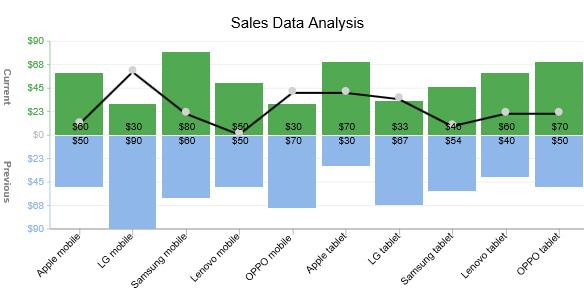
Analyzing Sales Data to Improve Your Business Strategy
To make informed decisions about selling medicine online, analyzing your sales data is essential. This data can reveal trends, customer preferences, and potential areas for improvement. Here are a few key strategies to effectively analyze your data:
- Track Your Metrics: Monitor crucial metrics such as conversion rates, average order value, and customer acquisition costs. This will help you understand how well your sales strategies are performing.
- Segment Your Customers: Group your customers based on their purchasing behavior. This segmentation allows for targeted marketing strategies, ensuring that your messaging resonates with specific demographics.
- Evaluate Product Performance: Identify which products are your bestsellers and which ones are underperforming. By understanding this, you can adjust your inventory and marketing efforts accordingly.
Moreover, consider implementing data visualization tools to help you interpret complex data sets more easily. Visual representations can highlight trends and anomalies that might be overlooked in raw data. Additionally, integrating your sales data with customer feedback can provide deeper insights into why certain products succeed or fail.
| Metric | Importance |
|---|---|
| Conversion Rate | Indicates the effectiveness of your sales funnel. |
| Customer Acquisition Cost | Helps assess the profitability of your marketing efforts. |
| Average Order Value | Tracks customer spending habits and helps in upselling strategies. |
Incorporating A/B testing into your sales strategy can also be a game-changer. By testing different approaches—be it pricing, promotional offers, or website layout—you can derive actionable insights that directly influence your sales performance.
Lastly, consider setting up regular reviews of your sales data. Monthly or quarterly reviews can help you assess the effectiveness of your strategies over time and adapt quickly to changing market conditions. This iterative approach ensures that your business remains agile and responsive.

Staying Compliant with Regulations and Best Practices for Online Sales
When it comes to selling medicine online, compliance with regulations and adherence to best practices are non-negotiable. Ensuring that your online pharmacy operates within the legal framework not only protects your business but also builds trust with your customers. Here are some essential steps to stay compliant:
- Understand the Legal Landscape: Familiarize yourself with the laws governing online medicine sales in your country. Regulations can vary significantly, and non-compliance can lead to severe penalties.
- Obtain Necessary Licenses: Make sure your online store holds all required licenses and certifications. This often includes pharmacy licenses and permits specific to your state or region.
- Verify Prescription Requirements: Implement strict policies for prescription medications. Ensure that you only sell these products to customers who provide valid prescriptions, in line with regulations.
- Use Authorized Suppliers: Partner only with reputable suppliers who comply with local and international regulations. This not only ensures the quality of medicines but also protects your business from legal issues.
Maintaining transparency with customers is crucial. Implementing clear policies around product sourcing, pricing, and returns can enhance customer confidence. Consider the following best practices:
- Offer Clear Product Information: Include comprehensive descriptions of medicines, including potential side effects and contraindications. This enhances customer safety and promotes informed purchasing decisions.
- Implement Secure Payment Methods: Use secure payment gateways that comply with data protection regulations to safeguard customer information.
- Provide Accessible Customer Support: Make sure customers can easily reach out for support. Having a dedicated team to address queries or concerns reinforces trust in your online pharmacy.
Regular audits of your online platform are essential to ensure ongoing compliance. Consider setting up a schedule for:
| Audit Type | Frequency |
|---|---|
| Regulatory Compliance Check | Quarterly |
| Supplier Verification | Annually |
| Website Security Audit | Bi-annually |
By staying proactive about compliance, you can mitigate risks and foster a positive, trustworthy online shopping experience for your customers. Emphasizing a commitment to safety and legality not only helps in avoiding fines but also differentiates your business in a crowded marketplace. Remember, a compliant online pharmacy is a successful one!
Frequently Asked Questions (FAQ)
Q&A on Selling Medicine Online: 25 Places (+ How to Build Your Store)
Q: Why should I consider selling medicine online?
A: Selling medicine online opens up a world of opportunity! Not only does it give you access to a larger customer base, but it also allows for the convenience of shopping from home. Plus, with the ongoing growth of e-commerce, now is the perfect time to dive in!
Q: What types of medicines can I sell online?
A: You can sell a variety of medicines, including over-the-counter medications, health supplements, and prescription drugs (if you’re a licensed pharmacy). Just be sure you’re compliant with regulations in your area to avoid any legal issues!
Q: What are some of the best platforms to sell medicine online?
A: Great question! Here are a few popular platforms to consider:
- Amazon – Huge reach and established trust.
- eBay – Allows for auction-style selling.
- Etsy – Perfect for herbal or homemade remedies.
- Shopify - Create your own branded store.
- WooCommerce – Ideal for anyone already using WordPress.
And there are 20 more you can explore! Each platform has its unique benefits, so consider your target market when choosing.
Q: What do I need to build my online store?
A: Building your online store is easier than you think! Here’s a simple checklist:
- Domain Name: Choose a catchy, relevant name that represents your brand.
- Website Builder: Platforms like Shopify or Wix make it user-friendly.
- Payment Gateway: Ensure you have secure payment options.
- Inventory Management: Keep track of your products easily.
- Compliance: Stay updated on regulations for selling medicine online.
Q: How can I market my online medicine store effectively?
A: Marketing is key! Here are a few strategies:
- SEO: Optimize your website for search engines to attract organic traffic.
- Social Media: Use platforms like Instagram and Facebook to engage with potential customers.
- Email Marketing: Build a mailing list and send out promotions or health tips.
- Content Marketing: Create blogs or videos about health topics to establish authority and attract customers.
Q: Are there legal challenges to consider when selling medicine online?
A: Absolutely! Compliance with local laws, like licensing and regulations for selling pharmaceuticals, is crucial. Be sure to research the legalities in your region, as selling prescription drugs usually requires a pharmacy license. It’s better to be safe than sorry!
Q: What do I do if I encounter issues with customers?
A: Customer service is everything! Address any issues promptly and professionally. A good return policy and clear communication can go a long way in building trust and loyalty.
Q: What’s the potential profit margin when selling medicine online?
A: Profit margins can vary widely depending on the type of medicine you sell and your pricing strategy. Generally, over-the-counter medicines have higher margins compared to prescription drugs. Conduct market research to set competitive prices while ensuring a healthy profit!
Q: Any final tips for someone just starting out?
A: Start small and focus on building a solid foundation. Ensure your website is user-friendly, prioritize customer service, and continuously seek feedback to improve. And most importantly, stay passionate about helping people with their health needs!
Ready to take the plunge into the world of online medicine sales? With the right approach, you can turn your passion for health into a thriving online business!
Key Takeaways
And there you have it! You’ve just unlocked the essential guide to selling medicine online, complete with 25 platforms to kickstart your journey. Whether you’re looking to reach a wider audience or simply want to explore new avenues for your pharmacy, the digital landscape offers immense opportunities.
Remember, success doesn’t happen overnight. It requires careful planning, dedication, and a genuine commitment to providing quality products and service. With the right approach and a little bit of creativity, you can build a thriving online store that not only meets regulatory standards but also delivers value to your customers.
So, why wait? Dive into the world of online medicine sales today! Take your time to research your options, choose the platforms that best fit your goals, and start building that store. Your potential customers are out there, searching for the medicines they need—make sure they find you.
If you have any questions or need further tips along the way, don’t hesitate to reach out! Here’s to your success in the exciting world of online pharmacy. Happy selling!



